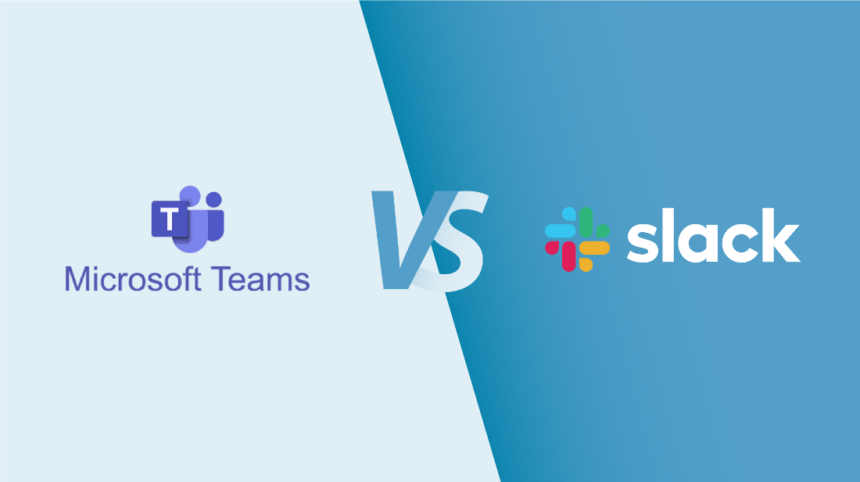Slack vs. Microsoft Teams
Introduction
Choosing the right team collaboration tool can boost productivity, cut email noise, and help your Nigerian business communicate more smoothly. Slack and Microsoft Teams are two popular options, but they have different strengths, costs, and integration options. This guide compares Slack and Teams in a simple, practical way, with Nigeria in mind. You’ll find neutral comparisons, cost considerations, features, security, and best-fit scenarios to help you decide what works best for your company.
- Slack vs. Microsoft Teams
- Introduction
- Quick Overview: What Slack and Microsoft Teams Offer
- Why Nigerian Businesses Consider These Tools
- Core Features Comparison
- Pricing and Value for Nigerian Businesses
- Security, Compliance, and Governance
- Integration with Nigerian Workflows
- When Slack is a Better Fit
- When Microsoft Teams is a Better Fit
- Migration Considerations: Moving from One to the Other
- Best Practices for Nigerian Businesses
- Quick Decision Guide
- Ready-to-Use Checklist for Implementation
- Conclusion
Quick Overview: What Slack and Microsoft Teams Offer
- Slack: A chat-focused platform built around channels, direct messages, and app integrations. It shines in fast, informal collaboration and a broad ecosystem of add-ons.
- Microsoft Teams: A chat and collaboration hub tightly integrated with Microsoft 365 (Office apps, SharePoint, OneDrive). It works well for structured workstreams, document collaboration, and enterprise IT environments.
Why Nigerian Businesses Consider These Tools
- Remote and hybrid work: Both tools support distributed teams across Nigerian cities.
- Local internet and mobile access: Both platforms have mobile apps and offline-friendly features to some extent.
- Integration with existing systems: Many Nigerian firms use Microsoft or Google ecosystems; Teams or Slack can slot into those setups.
- Compliance and security: Larger Nigerian companies often prefer tools with strong security controls and enterprise features.
Core Features Comparison
- Messaging
- Slack: Persistent channels, threads, emoji reactions, and quick search.
- Teams: Chat threads, meetings, and integration with meeting notes and agendas.
- Meetings and calls
- Slack: Voice calls and huddles; video meetings available but not as feature-rich as Teams.
- Teams: Full video conferencing with scheduling, recording, captions, and integration with Outlook.
- Collaboration on documents
- Slack: Links to files stored in connected services; real-time document collaboration depends on connected apps.
- Teams: Built-in co-authoring with Word, Excel, PowerPoint, and seamless file sharing via SharePoint/OneDrive.
- App ecosystem
- Slack: Large marketplace of integrations, including project management, CRM, developer tools.
- Teams: Strong Office 365 integrations; adds via apps and connectors, plus SharePoint-based file management.
- Administration
- Slack: Centralized admin console, workspace-level controls, and security features.
- Teams: Admin center with comprehensive policy controls, compliance, and security options aligned with Microsoft 365.
Pricing and Value for Nigerian Businesses
- Slack pricing: Lower entry cost for small teams (standard plan, plus, etc.), with add-ons for advanced security and compliance.
- Microsoft Teams pricing: Often bundled with Microsoft 365 subscriptions; if you already use Office apps, Teams may be cost-efficient and offer deeper integration.
- Total cost of ownership
- Slack: License fees, potential add-ons for compliance, and IT overhead.
- Teams: Potential savings if you already pay for Microsoft 365; lower integration friction for document workflows.
- Local considerations
- Data residency and local data handling: Check where data is stored and any regional compliance needs.
- Internet reliability: Both tools depend on stable internet; plan for mobile data or offline workflows in areas with slower connectivity.
Security, Compliance, and Governance
- User access and identity
- Slack: Supports SAML, SSO, and enterprise-grade controls; governance features exist in higher tiers.
- Teams: Strong identity with Azure AD, conditional access, and enterprise-level governance, especially in Microsoft-focused environments.
- Data protection
- Slack: Encryption in transit and at rest; enterprise plans add more controls.
- Teams: Encryption, data loss prevention, eDiscovery, and robust compliance options commonly used in larger organizations.
- Privacy and regulatory alignment
- Consider Nigerian data protection laws and any sector-specific rules; ensure the chosen tool supports your compliance posture.
Integration with Nigerian Workflows
- Nigerian teams often use Excel, Word, PowerPoint, cloud storage, and common business apps; Teams offers seamless integration with these tools.
- Slack’s strengths lie in quick, flexible communication and a broad set of third-party apps that can connect to both local and global services.
- Project management and CRM
- Slack: Can integrate with many PM and CRM tools you might already use or plan to adopt.
- Teams: Integrates well with Microsoft Project, Planner, Dynamics 365, and other Microsoft services, which can streamline workflows.
When Slack is a Better Fit
- Your team values fast, informal communication and rapid decision making.
- You rely on a wide variety of non-Microsoft tools and want a flexible app ecosystem.
- Your organization is small to medium-sized and not deeply embedded in Microsoft 365.
When Microsoft Teams is a Better Fit
- You already use Microsoft 365 or plan to move toward a single ecosystem for documents, email, and collaboration.
- You need strong meeting features, document co-authoring, and centralized governance for a larger organization.
- Your IT policy prioritizes tight security controls and enterprise compliance features.
Migration Considerations: Moving from One to the Other
- Data migration: Plan how messages, files, and history will transfer; consider third-party migration tools if needed.
- Change management: Prepare training, onboarding, and a transition timeline to minimize disruption.
- Phased rollout: Start with a pilot team or department to iron out issues before full rollout.
- Integration planning: Map existing apps and processes to the chosen platform to preserve productivity.
Best Practices for Nigerian Businesses
- Start with a clear use case: Define what problems you want to solve with either tool.
- Pilot first: Try 2–4 weeks with a small team to gather feedback.
- Align with IT policy: Ensure security, user provisioning, and device management meet your standards.
- Optimize for mobile: Ensure teams can work effectively on smartphones, common in Nigerian work life.
- Train and support: Provide short, practical training sessions and cheat sheets.
Quick Decision Guide
- If you value deep Office 365 integration and formal governance, choose Microsoft Teams.
- If you want flexible tools, a broad app ecosystem, and rapid, informal collaboration, choose Slack.
- If you are a small business already paying for Microsoft 365, Teams often provides the best overall value.
- If your operations rely on many non-Microsoft tools and you want a lightweight chat-first experience, Slack may be better.
Check this out: Top Remote Job Sites Nigerians Should Bookmark in 2025
Ready-to-Use Checklist for Implementation
- Assess your current software stack and whether you are invested in Microsoft 365.
- Define goals: Faster communication, better document collaboration, or improved meeting efficiency.
- Choose a pilot group and set a clear timeline.
- Plan data migration, if needed, and prepare a support plan for users.
- Set up governance: Who can create channels, what are naming conventions, and how to handle data retention.
- Organize training sessions and provide quick-start guides.
- Monitor usage, collect feedback, and adjust.
Conclusion
Both Slack and Microsoft Teams offer valuable capabilities for Nigerian businesses. Your choice should align with your existing software ecosystem, team size, security needs, and preferred way of working. Teams often fits organizations already in the Microsoft world, while Slack suits teams seeking flexible collaboration across a wider range of apps. Start with a clear use case, run a short pilot, and scale based on real results. With careful planning, you can choose a tool that drives collaboration, saves time, and supports growth in Nigeria.
Image source: Nortech.ca/






